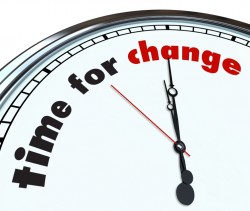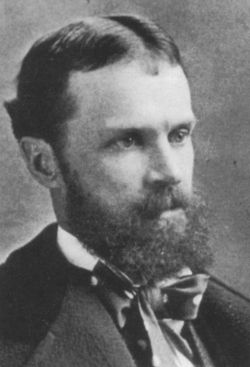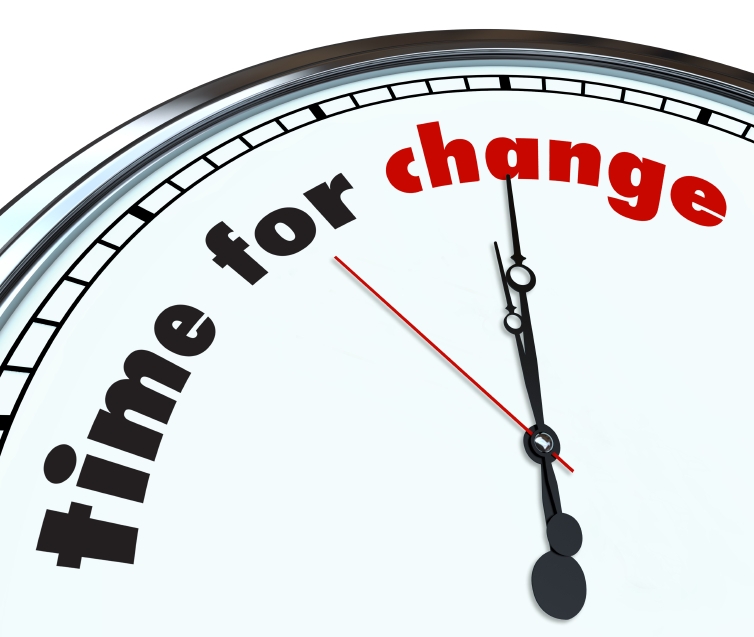This week I’m at the Behavior, Energy, and Climate Change Conference in Sacramento, Calif. Climate hawks and policy wonks spend a lot of time thinking about technology and regulation, but not nearly enough thinking about behavior and human motivation. Building a clean energy future will require not just concentrated solar and carbon caps but big changes in how people and societies do things. For insights on motivating change, let’s turn to philosopher William James:
——
 Everyone has certain behaviors they repeat over and over again, causing the same unwelcome effects. “Why do I always do that?” we cry in frustration. Think of the person who keeps dating people who are abusive or scared of commitment, the parent who keeps shouting at their kids or capitulating to their demands, or the blogger who keeps procrastinating writing projects until after midnight and then getting no sleep (ahem). When friends come to me for advice about such things, I give them a couple of William James quotes and a tennis analogy. (This is why I have so many friends.)
Everyone has certain behaviors they repeat over and over again, causing the same unwelcome effects. “Why do I always do that?” we cry in frustration. Think of the person who keeps dating people who are abusive or scared of commitment, the parent who keeps shouting at their kids or capitulating to their demands, or the blogger who keeps procrastinating writing projects until after midnight and then getting no sleep (ahem). When friends come to me for advice about such things, I give them a couple of William James quotes and a tennis analogy. (This is why I have so many friends.)
In addition to being a wicked bitchin’ philosopher, James was a keen student of human nature. He recognized that, far from the creatures of reason described by Enlightenment rationalism, human beings are above all creatures of habit. Most of the time, in most situations, we act without conscious thought, based on what we’ve done before: “We are stereotyped creatures, imitators and copiers of our past selves.”
This is easy to forget. After all, reasoning is a conscious activity. We notice when we do it, so it seems salient to us and we exaggerate its significance. Habitual responses and reaction are, by definition, not conscious. They don’t draw our attention, and thus we tend to underestimate their significance in our daily lives.
Our naive self-image is that we decide what’s right and wrong based on our beliefs and values, and act accordingly. We think of our outward behavior as a reflection of our inner lives, or soul, or what have you. But recent social science has found that the truth is something close to the opposite. In fact, we shape our self-image, our values and priorities, around our actions. In a sense, we construct our selves to justify our actions.
Habits are formed on the basis of nature, nurture, and circumstance, but only very rarely conscious thought. As much as we like to think of ourselves as autonomous souls, imbued with the heavenly power of reason and freedom of will, we are, it turns out, animals. The reasoning we’re so proud of is a fairly thin overlay over a substrate of instincts and automatic responses.
It’s difficult for many people to accept this. It flies in the face of our intuitions, our philosophical and religious traditions, even our legal precepts in some cases. But multiple lines of evidence, from biology, neurology, social science, and more, all point in the same direction. If you want to stop dating crappy guys, or losing your temper, or procrastinating, it won’t help much to resolve to change or pledge to change or other such cognitive acts — the only answer is to change your circumstances and start doing different things. Your thoughts will take care of themselves.
Aaaanyway … so what? What are the implications for politics and social change?
Consider: Many climate hawks tend to view the current fossil-fuel regime as a straightforward consequence of economics. Fossil fuels cost less; the rest is noise.
 Habit your way: William JamesBut the world’s energy systems, like all its systems, can also be viewed as an enormous network of habits, formed by repetition over years of practice. If we want to change those habits — individual habits, institutional habits, intellectual habits — we’ll have to do more than provide people facts (about climate change, relative costs, or anything else). We’ll have to attend to the painstaking work of forming a new network of habits.
Habit your way: William JamesBut the world’s energy systems, like all its systems, can also be viewed as an enormous network of habits, formed by repetition over years of practice. If we want to change those habits — individual habits, institutional habits, intellectual habits — we’ll have to do more than provide people facts (about climate change, relative costs, or anything else). We’ll have to attend to the painstaking work of forming a new network of habits.
How do you change entrenched habits? “New habits can be launched,” James said, “on condition of there being new stimuli and new excitements.” In other words, the key is to tweak the circumstances in which people act, to cause them to do something new, and do it consistently. [Those tweaks are the subject of this week’s Behavior, Energy, and Climate Change Conference.]
(Sidebar: James thought that the road to self-improvement was the purposeful development of new habits: “in the acquisition of a new habit, we must take care to launch ourselves with as strong and decided initiative as possible. Never suffer an exception to occur till the new habit is securely rooted in your life.” I’m sure I don’t need to point out how difficult that turns out to be.)
Once new patterns of behavior are established, they in turn become unthinking habit. For some reason, as little as we understand this in other areas, we get it perfectly well in sports. When I took tennis classes in college, my coach used to wrap my forearm and wrist in tape so I couldn’t flex my wrist — it forced me to use my torso, shoulder, and arms to generate force, not my wrist. That kind of training begins awkwardly, by forcing us not to do what comes naturally. Initially it degrades performance; only over time do new, more efficacious habits form as the motions are written to muscle memory.
We all get it when it comes to sports. But the same basic principle is true for changing other habits, even institutional habits involving behaviors we think of as social or highly cognitive. Breaking old habits and forming new ones is awkward and difficult, especially at the beginning, and it may involve a period of diminished performance.
Social groups — polities, governments, businesses, etc. — have something like collective muscle memory. As James said, “habit is the enormous flywheel of society, its most precious conservative agent.” Cultures and subcultures, just as much as individuals, are “imitators and copiers of their pasts.” Those shared habits are necessary — it wouldn’t do for every decision to require a new round of conscious consideration — but they also create an enormous amount of status quo bias.
This is why I’m always going on about the contribution social science can make to solving the challenges that lay ahead, not only on energy but on land use, transportation, consumption, waste, civil society, and so on. Yes, it will be helpful to have new or better technologies. But simply intoning “technology, technology, technology” misses the point. The development, deployment, and market exchange of technologies all involve skeins of habit. We cannot innovate our way around human nature.
We will have to change our habits, everything from the way we do economics to the way we build cities to the way we regulate electric utilities to the way we eat. It would help, in that undertaking, to have the best possible understanding of social dynamics and human behavior. We can learn how to avoid stepping on trip wires that activate fear of loss or tribal hostilities. We can learn how to trigger virtuous circles of improvement. We can structure choices so that the sustainable choice is the default. And so on.
There’s plenty
we can do in public policy and in our civic life to help drive the wrenching, occasionally awkward process of change that will ultimately provide better lives for our children. The technologists are wrong that technology can do that work for us. The DFHs are just as wrong to wait for some grand Shift in Consciousness. Remember, action precedes consciousness. As simplistic as it may sound, the task before us is just to start doing different things.



